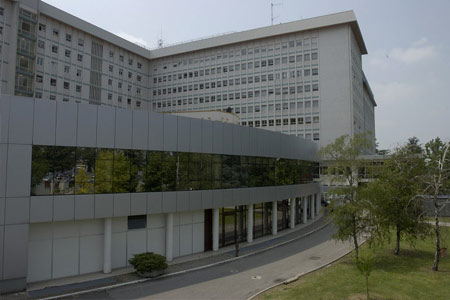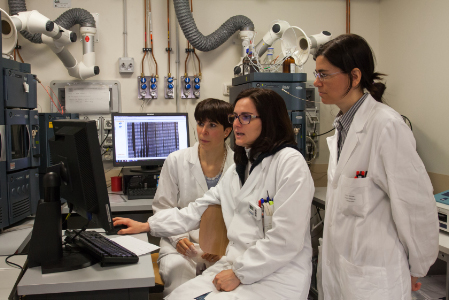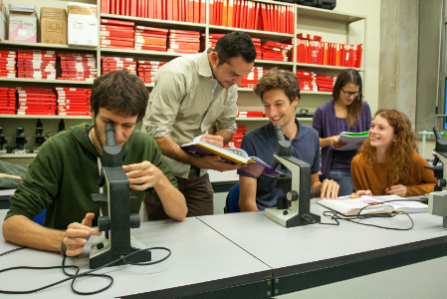Research interests
| Topic |
People |
Description |
| Innate immunity |
Nicola Tamassia
|
|
| Immunità innata e terapia anti-tumorale |
Stefania Cane'
|
La mia ricerca è rivolta alla comprensione dei meccanismi di immunosoppressione associati alle cellule mieloidi nella risposta contro i i linfomi |
| innate immunity |
Vincenzo Bronte
Marco Antonio Cassatella
Marta Donini
Carlo Laudanna
|
The innate immune system, also known as the non-specific immune system or in-born immunity system is an important subsystem of the overall immune system that comprises the cells and mechanisms that defend the host from infection by other organisms. The cells of the innate system recognize and respond to pathogens in a similar way, but, unlike the adaptive immune system, the system does not provide long-lasting immunity to the host. Innate immune systems provide immediate defense against infection, and are found in all classes of plant and animal life. |
| Natural Immunity |
Vincenzo Bronte
Marco Antonio Cassatella
Marta Donini
Carlo Laudanna
|
Natural immunity is the evolutionarily older component of immunity that is based primarily, albeit not exclusively, on the function of professional phagocytes and which is characterized by the ability to respond to pathogens without requiring a previous encounter with the same pathogens. . This is why it is also called natural immunity. |
| Specific, adoptive, immunity |
Carlo Laudanna
|
Specific immunity based on function of lymphocytes leading to immune memory and anti-neoplastic reactions |
| Tumor immunology |
Vincenzo Bronte
Vladia Monsurro'
Silvia Sartoris
Stefano Ugel
|
Immune response and tumors |
| inflammation |
Flavia Bazzoni
Vincenzo Bronte
Marco Antonio Cassatella
Patrizia Scapini
|
Studies on the mechanisms utilized by innate immune cells to modulate inflammatory and immune responses. In particular, the studies are focused in gaining new insights on the role of neutrophils and monocyte/macrophages in autoimmune diseases and cancer.
|
| Inflammation and Alzheimer disease |
Vittorina Della Bianca
|
Study on the trafficking of different leukocyte sub-populations from blood into the central nervous system during neurological disorders, in particular the Alzheimer disease, in which inflammation plays a detrimental role in their pathogenesis and clinical evolution. |
| Inflammation and autoimmunity |
Barbara Rossi
|
Study on the trafficking of different leukocyte sub-populations from blood into the central nervous system during neurological disorders in which autoimmunity and/or inflammation play a detrimental role in their pathogenesis and clinical evolution. |
| Infiammazione e tumori |
Marco Antonio Cassatella
|
nfiammazione e cancro vanno spesso di pari passo. Da un lato il tumore scatena una risposta infiammatoria, dall'altro proprio il contesto infiammatorio puo' alimentare l'aggressività del tumore e la disseminazione delle metastasi. La mappa dei punti in cui processi infiammatori e tumorali si interconnettono e agiscono in concerto è in corso di esplorazione. |
| Neuroimmunology, Neuroinflammation |
Gabriela Constantin
|
Studio dei meccanismi che controllano l'infiammazione in malattie autoimmuni e neurodegenerative |







